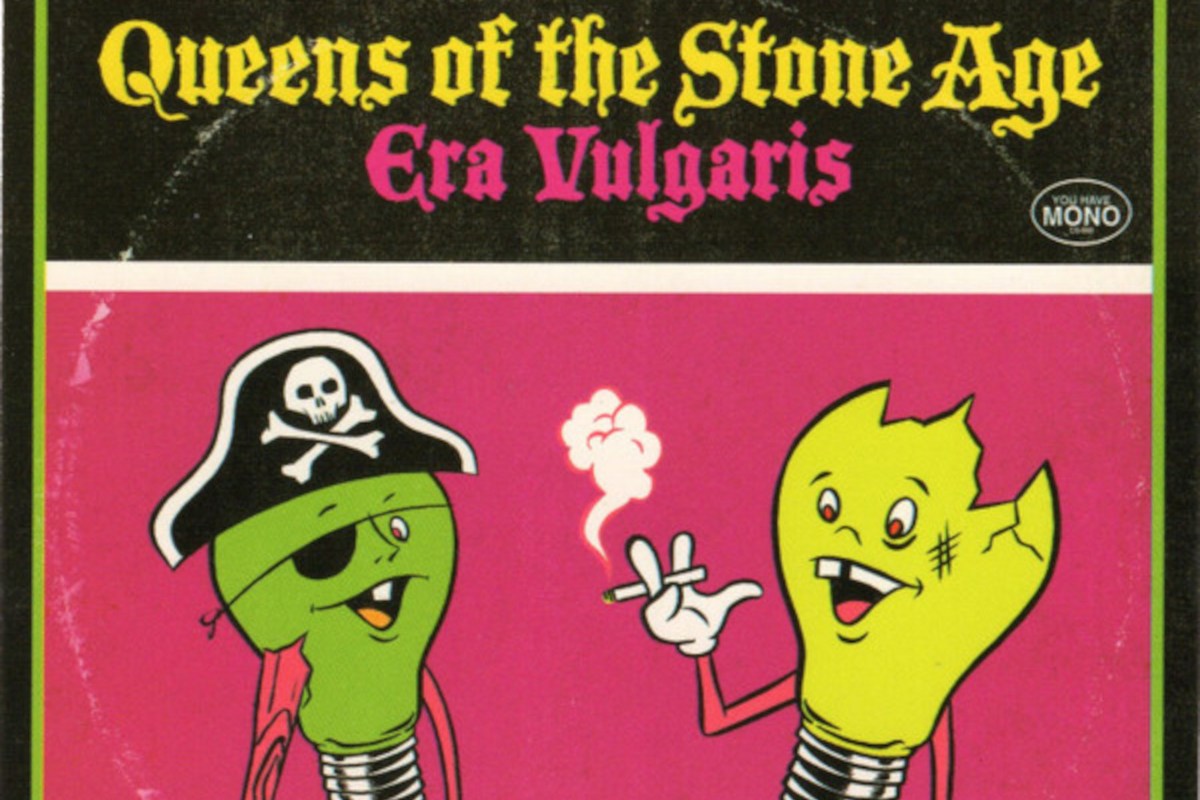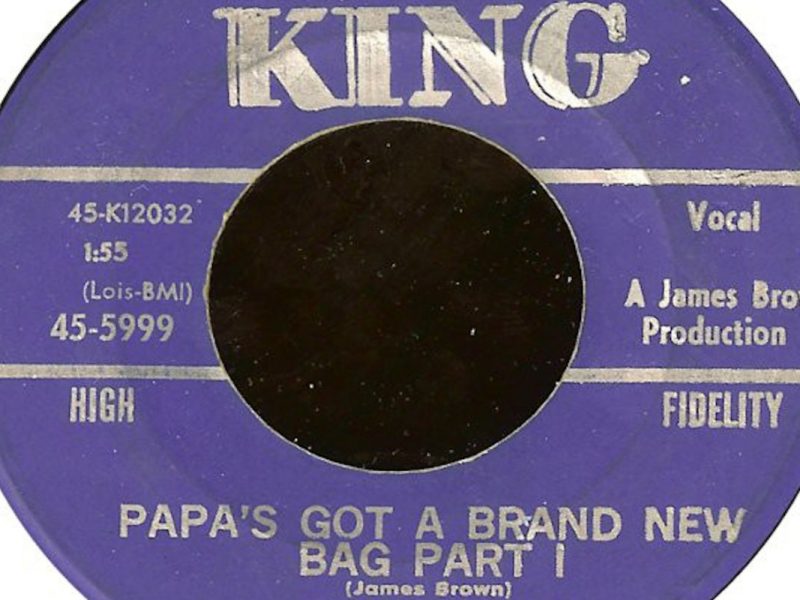Josh Homme has never taken Queens of the Stone Age — or himself — too seriously, from cramming a song full of drug names (“Feel Good Hit of the Summer”) to periodically letting former bassist Nick Oliveri scream his brains out (“You Think I Ain’t Worth a Dollar, but I Feel Like a Millionaire”). But for many followers, the band’s fifth LP felt like an overt troll move.
After all, the Era Vulgaris sleeve features a pair of anthropomorphic, tooth-impaired light bulbs, plastered beneath garish pink and yellow text; the lyrics are packed with low-meets-highbrow punch lines; and the musical aesthetic is as smoke-stained and cracked as the characters on the cover, built on barbaric drums and riffs that burn like, well, “Battery Acid.” It feels like you could catch an STD by listening too hard. (Of the title, Latin for the “Common Era,” Homme told Pitchfork his much simpler, baser meaning: “It sounds like ‘the Vulgar Era,’ which I like, because it sounds like something that I would like to be part of.”)
But a more complicated truth is buried beneath the grime: Instead of the tossed-off barnburner it appears to be, Era Vulgaris is an exploration, a labor of both sin and love — as nuanced, in a way, as Homme’s three previous masterpieces: 2000’s Rated R, 2002’s Songs for the Deaf and 2005’s Lullabies to Paralyze. And it took a new level of patience to create.
Watch Queens of the Stone Age’s ‘Make It Wit Chu’ Video
The band — at this point, the core trio of Homme (vocals, guitars, assorted other sounds), Troy Van Leeuwen (guitars, keyboards, bass) and Joey Castillo (drums, percussion), rounded out by various guests — arrived at their first sessions in July 2006 without a concrete direction. They also had no material, except for a planned revamp of “I Wanna Make It Wit Chu,” a 2003 track from Homme’s stoner rock collective the Desert Sessions.
They hopped among three studios in the Los Angeles area, with their mastermind generating ideas as they went — a change in method from previous Queens LPs. And it took a long time for the vibe to crystalize: Chris Goss, who coproduced the record with Homme under the name the Fififf Teeners, told Uncut he’d “seen him do that before with the Desert Sessions but never with Queens,” adding, “The Queens of the Stone Age is a business, where he’s the CEO. It’s not run the same.”
“It was a long process,” Van Leeuwen told Suicide Girls. “It was the longest I’ve ever taken to make a record, frankly. I’ve made records over the process of a year, but this was the first time it’s ever been my total focus for that long. This was the first time I’ve ever done that — total focus for 10 months.”
Hear Queens of the Stone Age’s ‘I’m Designer’
You can detect that sense of fumbling on Era Vulgaris, which makes for a weird first listen: Tracks like “Turnin’ on the Screw” and “I’m Designer” seem self-consciously primitive, relying on angular, robotic guitar riffs and one-liners that feel cobbled together from unused jokes. On the latter, Homme moves toward cynicism, reflecting on the concept of selling out: “It used to be the plan was screwing the man / Now it’s have sex with the man.” On the former, he sings in his usual sleazy-sexy style, “You ain’t a has-been if you never was.” He also seems to arrive at the album’s mission statement: “Drawn inside a toilet on the wall / The world is round; my square don’t fit at all.”
But this atmosphere — dirty and dead-eyed, mechanical and vampiric — becomes alluring the longer you live inside it. And Homme uses it to catalyze not only some of his heaviest riffs (the two-note grind of “Misfit Love,” the punk-flavored pummel of “Run, Pig, Run”) but also many of his most beautiful melodies (the falsetto showcase on the chorus of “In the Hollow,” the fuzzy lurch and harmonized croon of “Suture Up Your Future,” the woozy clean guitars of “River in the Road”).
Hear Queens of the Stone Age’s ‘River in the Road’
So the experiment paid off — even if, without a single to rival the catchiness of “No One Knows” or “Little Sister,” the album faced a minor commercial backslide, hitting only No. 15 on the Billboard 200. Ultimately the prolonged sessions made Homme rethink his future strategy: “I love this album, but I will never make another album this way again,” he told Uncut. “Or at least I don’t think that I will.”
Despite the mild regret in hindsight, Homme wound up with the most unique project in his catalog — a moment where the beauty and filth never felt more intertwined. “I think the light bulbs [on the cover] are representative of what you perceive to be a great idea that really is not that great of an idea,” Homme said in an official album video promo. “A light bulb always represents ideas. So what does a totally fucked-up light bulb represent?”
Top 100 Classic Rock Artists
Click through to find out how they stack up, as we count down the Top 100 classic rock artists.



